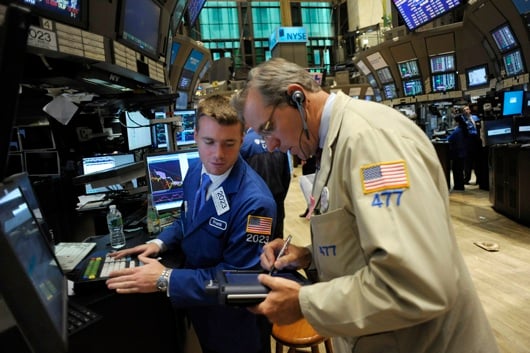Legendary technical analyst Ralph Acampora, who came out of retirement last year, sees good times ahead for stock investors. Bondholders? That's a different story.
U.S. stocks may gain by more than 20 percent within the next 10 months as investors are too pessimistic about the prospects for economic recovery, said Ralph Acampora, whose career as a technical analyst began in 1966.
The Dow Jones Industrial Average may climb to 13,000 by next June, said Acampora, whose Geneva-based Altaira Wealth Management has $150 million of client funds. Technical analysts view pessimism as a sign that stocks may rise, because it indicates investors have capacity to buy shares after avoiding the market. The Dow rose 0.4 percent yesterday to 10,572.73, bringing this year's gain to 1.4 percent.
“I don't think this is a market top,” Acampora said in an interview in Geneva. “It's absorbing bad news in preparation for a market recovery.”
Acampora, a New York-based director at Alverita LLC, came out of retirement last year to manage funds sold to European investors by Altaira. His four-decade Wall Street career included stints as director of technical research at Kidder Peabody & Co. and Prudential Securities. Technical analysts make predictions based on price and volume chart patterns.
U.S. stock benchmarks yesterday rose to the highest levels in five weeks, as speculation companies will be bought or return cash to shareholders raised investors' optimism. Investors have grappled with conflicting reports this year about the strength of the economy as American employers add jobs while European governments struggle to contain their budget deficits and China moves to cool growth.
‘Aftershocks'
The Standard & Poor's 500, which gained 0.9 percent this year, remained 7.6 percent below its peak for 2010 on April 23. The Dow has declined 6 percent from its April high.
“We've seen the worst, we had the earthquake,” Acampora said of the last two years. “What we're experiencing now are the aftershocks.”
The switch by investors to bonds from equities may lead to a fixed-income “bubble,” Acampora said.
“Very little of the money that went into fixed income last year is coming back because they're scared to death” of equity markets, he said. “We lost a generation of investors there and that's the next bubble.”







